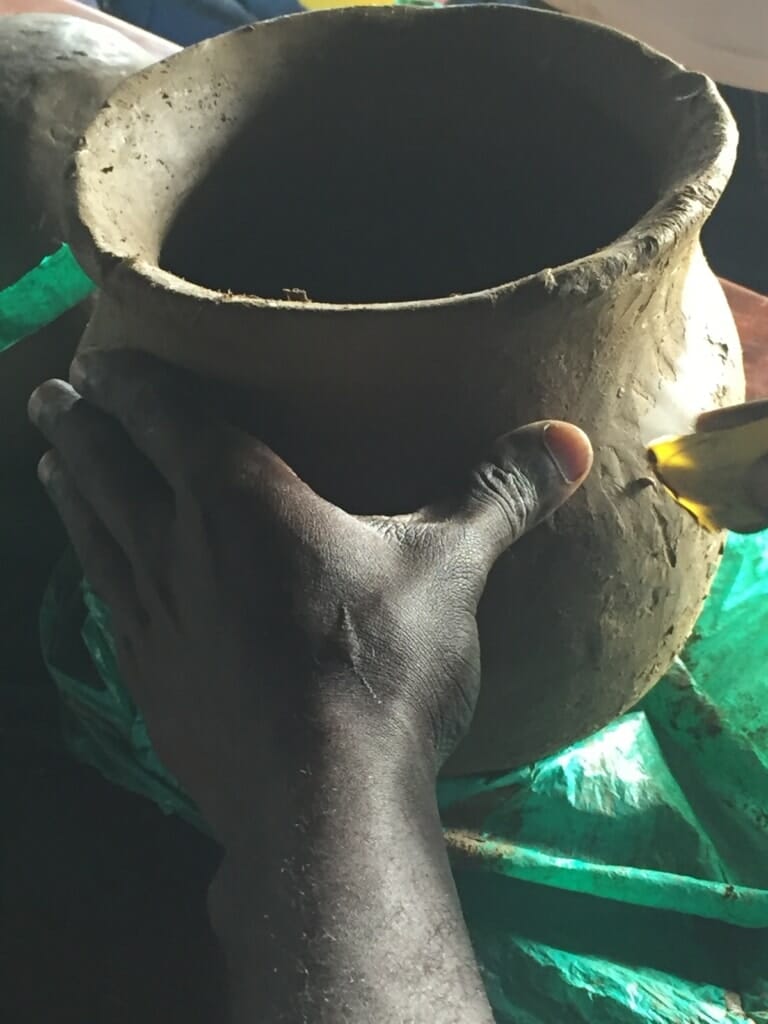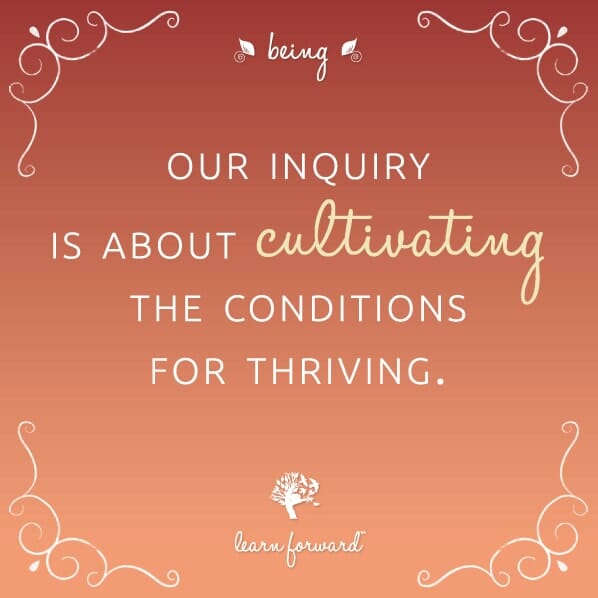As we care for and educate children, how can we cope with the weightiness and complexity of our sacred work and move from busyness to mindfulness?
Have you ever felt the weight? Has it ever consumed you? Has your strength ever given out under the strain?
This topic is poignant for me this week, as I just received the diagnosis of adrenal fatigue from my doctor. Yes, despite all of my great practices (spiritual practices, yoga, and journaling), despite my attention to thriving and my commitment to self-care both professionally and personally, I still need to attend in new ways to the renewal of my body and soul.
After my ego gets patched back together, I surrender, it is an inner journey. I realize this is not something requiring me “to do” more in my workaholic frenzy. It is a wholehearted shift, so I continue to walk with you along this journey of thriving.
A Global Perspective
We must consider what our culture is teaching our children about what matters most. The time to glorify busy is gone. There is a major shift happening and it is impacting education systemically.Let’s process what this means more globally.As educators, we are all at-risk for compassion fatigue, becoming overwhelmed by stress, and manifesting physical symptoms. As parents, we face similar challenges. Caring for children is endless work that can easily consume. Just like us, our children need a different skill set to learn how to thrive in the future. It includes mindfulness. Our workaholism and frenzy won’t serve them. Our addiction to our smart phones won’t serve them.Klaus Schwab, founder and Executive Director of the World Economic Forum, discussed the future and posits,
“I am a great enthusiast and early adopter of technology, but sometimes I wonder whether the inexorable integration of technology in our lives could diminish some of our quintessential human capacities, such as compassion and cooperation. Our relationship with our smartphones is a case in point. Constant connection may deprive us of one of life’s most important assets: the time to pause, reflect, and engage in meaningful conversation.”
Our children need to cultivate the assets of reflection, stillness, and relationship to face the future. Being self-regulated is essential. The great news is if we cultivate mindfulness in our homes and classrooms, it serves our adaptation too!



Small Tweaks
This shift is a major alteration in our perspectives, from busyness to mindfulness, but one small tweak will have profound effects!The research is conclusive about how a meditation practice can positively impact our brains, behaviour, and lives. Check out this brief set of research links from our friends at Now Take a Breath. Seeing this shift from busyness to mindfulness, Harshad and Uchita developed practices for everyone at the Table of Learning. What does the practical shift look like?I’m meditating on the bed with my little person each night. Six to ten minutes and she loves it! We’re pausing for prayerful meditation twice a week as an entire school. We’re offering resources to everyone at our Table of Learning: educators, parents, and students.Little tweaks make profound changes.Just 10 minutes per day.Everyone feels better and we are supporting our children to learn lifelong skills that will serve them in the future we cannot see.Another great resource is the new app Calm. Everyone is raving about it and I’m a new convert. While we still need whole-scale system changes to support our parents, teams, and teachers to let go of busyness, embrace the shift, and practice mindfulness; we’re definitely on our way!
Together, we can make a change.
For the sake of the children,
Karine
P.S. Do you want your children to be prepared for the future? Please join our Learn Forward blog series “The Trajectory of Education.” We’ll include one manageable and one practical suggestion for teachers and parents each week.
